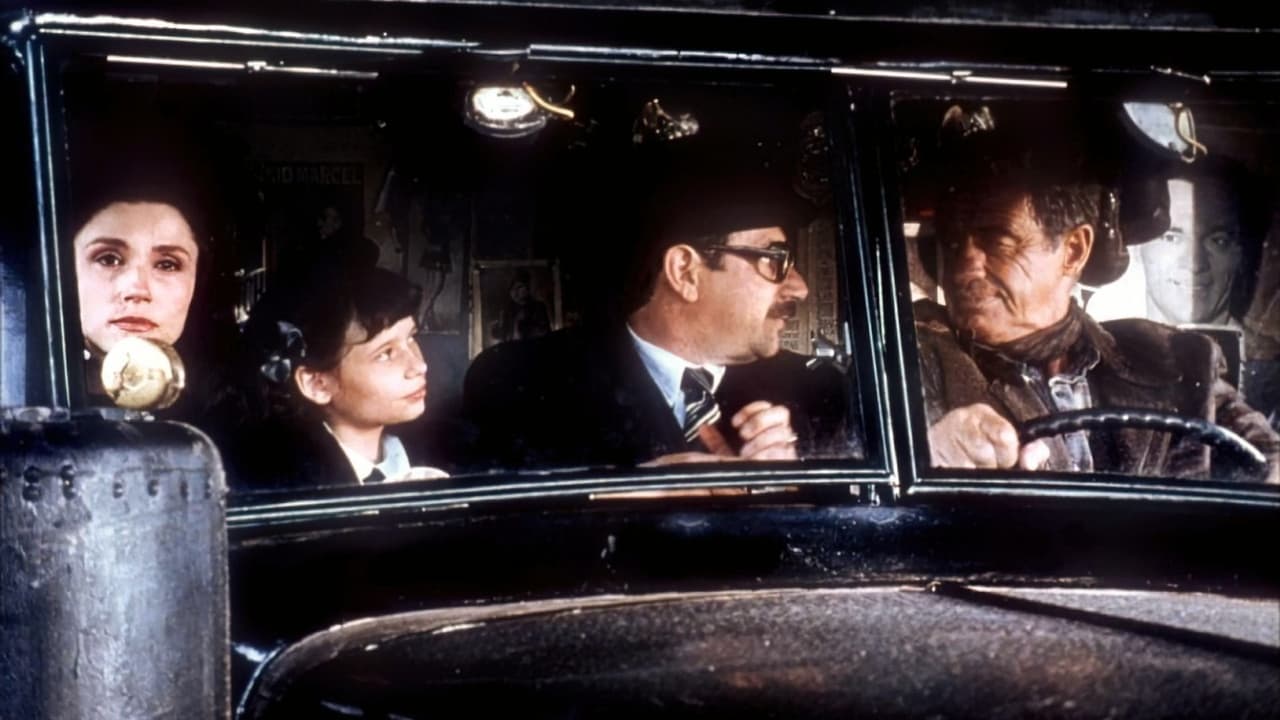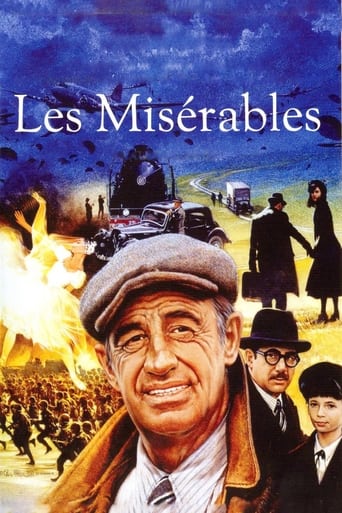

Dreadfully Boring
... View MoreA story that's too fascinating to pass by...
... View MoreThe movie is wonderful and true, an act of love in all its contradictions and complexity
... View MoreIt is both painfully honest and laugh-out-loud funny at the same time.
... View MoreA variation on Victor Hugo's classic novel by means of the story of a man whose life is affected by and somewhat duplicated by the Hugo story of the beleaguered Jean Valjean.There have been many, many film incarnations of "Les Miserables". Many before this film, and many since. Some are musicals, some are narratives, and most (including this one) tend to run on the longer side. But this film may be more unlike any of the others than any of them are with each other.The idea of adapting the story to the 20th century is clever, and is even more clever by referencing a film within a film, so it is not just a straight update. But further still, the time period seems to be around 1950, maybe earlier... so it wasn't set in the 1990s. It is still a period piece. It is, to my recollection, the only period piece to use a film-within-a-film structure.
... View MoreDespite the title, this film is not a straight-up adaptation of the classic novel but a loose updating to the 20th century but with events and characters mirroring those of the book(with Henri really identifying with Jean Valjean himself). Claude Lelouch had a very ambitious and quite mammoth task to take on, and the final result is really exceptional. It may not be a straight-up adaptation, and it wasn't intended to be, but you'll be surprised and impressed by how true in spirit it is to the book. The scenery and costumes, set in WW2 20th century, are beautiful and authentic and the whole film is shot similarly beautifully. The score is sweeping, haunting and subtle depending on the mood of each scene. The story never feels rushed or stodgy even with the length instead it is ceaselessly compelling, you identify completely with every character and their increasingly intense and harrowing situation(especially with Henri's task and struggles to keep the Jewish family out of the Nazis' clutches. The ending is incredibly moving also. The dialogue is intelligent and true to period, Lelouch's direction is pitch perfect and there is no fault to be had with the acting either. In support, Annie Giradot is particularly heart-breaking but it is Jean-Paul Belmondo's outstanding lead performance that people will remember most. All in all, a really magnificent and exceptional film. 10/10 Bethany Cox
... View MoreIn one of the comments here I read that the movie had few references to the novel--I completely disagree! This movie was, in every way, based around Victor Hugo's novel. I'm in the middle of reading the book (unabridged version) and saw the movie a little while ago. As I read I come across little things that make me think, "Wow, that movie was true to the book!" Perhaps not directly, but if one has the ability to read between the lines you will notice that this movie IS Les Miserables. Each character in this movie is symbolic of a character from the book and each occurrence in the movie has some relevance or mention in the novel. For example, there is a scene where the two men are trying to escape prison by swimming out and they try to see how long they can hold their breath. In the novel, Jean Valjean (the prisoner) jumps off a boat and swims to his freedom, but he must (obviously) hold his breath long enough to swim away without being noticed/having to go to the surface for air.This movie is excellent, dramatic, moving, and intriguing--never a boring moment. And don't let anyone tell you it has nothing to do with the book, because that's as far from the truth as you could possibly get.
... View MoreI do not remember the last time I was so moved by a film. This is not an easy film to watch - simply because it is so intelligent and beautifully executed. Belmondo and Lelouch are two masters at the top of their form. I cannot recommend the film any higher. But if you are going to watch, then you have to prepare yourself to be swept away and give yourself completely to the movie as Lelouch clearly did!
... View More